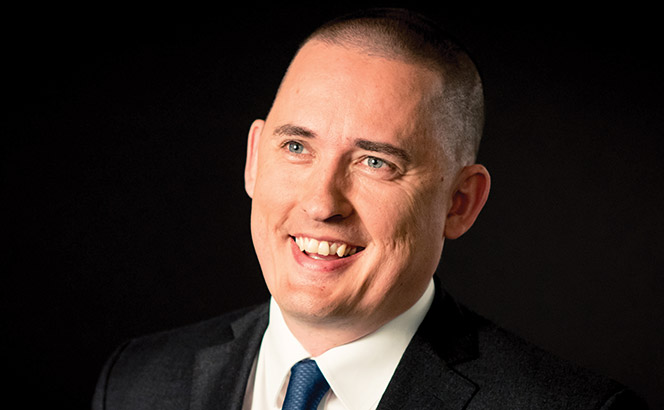Stephenson Harwood has reported an 11% rise in turnover to £228m from £206m for 2022/23, the firm’s highest-ever revenue. It comes after the firm reported largely flat financials for the year 2021/22.
This time around, profit per equity partner (PEP) is up 6% to £725,000 from £685,000 in 2021/22. The firm has added 22 equity partners, with 11 lateral hires and 11 internal promotions over the last year, while four partners have retired from the partnership.
Speaking to Legal Business about the revenue increase and the firm’s ambitions Eifion Morris (pictured), the firm’s chief executive, highlighted its five-year strategy, which launched in May 2022 with the aim of doubling the firm’s turnover by 2027. Morris said: ‘We want growth, we want ambitious partners, and we want to grow in all sectors. If you want to double revenue in a short space of time, you need an active program of lateral hires. We have had a lot of radical change in a short period, and we are starting to see that pay off. This is not the endpoint but the start.’
The strategy will focus the business on five key sectors to increase profitable growth: decarbonisation, life sciences, private capital and funds, technology, and transportation and trade. These were identified by the firm as sectors which will see strong growth and development over the next few years.
Stephenson Harwood also intends to maintain its 50-50 litigation-transactional balance. 50% of the firm’s revenue currently comes from disputes, which has always been a notable strength of the firm and several of its contentious practices are ranked in The Legal 500. This includes commodities disputes and pensions dispute resolution, which receive a top-tier ranking; commercial litigation: premium, and contentious trusts and probate, which are ranked tier two; and banking litigation: investment and retail, property litigation, and intellectual property patents (contentious) which are ranked in tier three.
The current revenue breakdown across the firm’s practice areas is finance 24%, commercial litigation 28%, corporate 21%, marine and international trade 12%, employment, pensions and private wealth 10% and real estate and projects 6%.
‘At the heart of our strategy is maintaining and leveraging the 50-50 litigation-transactional balance of the firm. This has been very important for maintaining growth, and we are a very well-hedged business,’ Morris said.
The firm has also been bedding in a new global leadership team as part of its ambitions moving forward. The team is 50% male and 50% female. Morris highlighted the importance of this: ‘With the new global leadership team, I wanted to encourage diversity of background so that the team would bring different ideas and life experience to the table. The team formed during Covid, and we have had to deal with a lot of difficult decisions, but this meant we formed a very strong team.’
Stephenson Harwood highlighted several key mandates for the year across its life sciences, dispute resolution, rail and road, and corporate practices, including advising Bicycle Therapeutics on its radiopharmaceuticals deal with Novartis to develop several oncology radioligand therapies. It also represented Trafigura in the Trafigura v Gupta case and advised on Abellio UK and Nederlandse Spoorwegen management buyout.
Other highlights include advising WindAcre Partnership on its part of the acquisition of Nielsen Holdings, valued at over $16bn and LXi REIT on its £773m debt refinancing.
Looking forward, Morris is committed to raising the firm’s profile. ‘I want the firm to be more ambitious, and more confident. One of our best clients told us that we were “the best law firm you’ve never heard of”. That is something I want to change,’ he said.
holly.mckechnie@legalease.co.uk
















